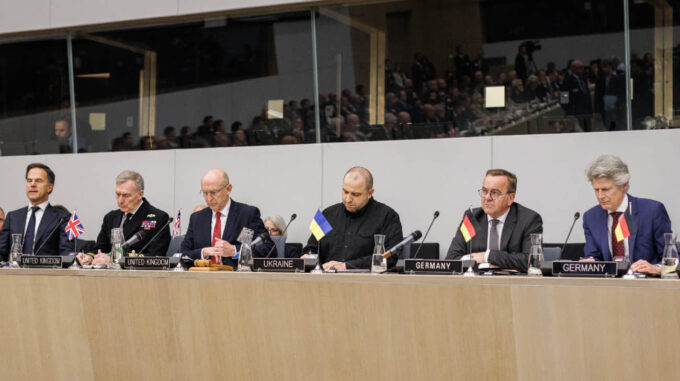Ukraine and its international partners are intensifying efforts to establish a new defense infrastructure, which aims to radically change the approach to the production of weapons and military equipment during the ongoing war

At the 28th "Ramstein" format summit held on June 4 at NATO headquarters in Brussels, participating countries agreed to launch a large-scale initiative to create a special defense manufacturing mechanism, similar in concept to the "Defensive Ramstein." This represents a new strategic step in supporting Ukraine as well as in developing a modern production base for the military sector. According to Ukrainian Defense Minister Rustem Umerov, the idea of building such a mechanism arose from the initiative of leading Western capitals, which offered Ukraine their expertise and financial support. "Sources from Western countries approached me with the question of whether Ukrainian defense enterprises could establish production in their countries to manufacture the latest weapons and military equipment. They emphasized that they are willing to fully fund this production and that the products will be supplied to Ukraine for the duration of the war," the Ukrainian minister stated during a press conference in Brussels. Another important detail is the dissemination of this initiative. Umerov explained that during negotiations, the initiative was significantly expanded — now it involves not only production but also mutual investments between Ukraine and partner countries. "Ukrainian companies will be able to invest in the partner countries' manufacturing facilities, and companies from other nations will have the opportunity to build large factories and plants in Ukraine," he clarified. This opens new horizons for cooperation and technological exchange, strengthening Ukraine's defense industry and establishing a modern defense manufacturing network. Currently, this idea remains at the conceptual discussion and alignment stage. An official name for the initiative has not yet been devised, but its essence already attracts significant interest and political support. The Defense Minister added that the new mechanism marks a strategic shift in Ukraine's defense policy approach and is a response to the need to rapidly and effectively increase the production of essential weapons despite complex military challenges. An important aspect of this support was highlighted by German Defense Minister Boris Pistorius, who offered to facilitate the production of long-range weapons in Ukraine. This demonstrates that the German politician views the project as a crucial element in strengthening Ukraine's defense capabilities and further reforming the industry along strategic lines. It is also worth recalling that during this session, Ukrainian President Volodymyr Zelensky called on Western partners to increase investments in Ukraine’s defense industrial complex, emphasizing the country’s need for new technologies and manufacturing capacities to respond swiftly to modern threats. At the same time, an important development was the absence of the U.S. Defense Secretary from this meeting—the first time in a long while that he did not participate in Ramstein, provoking widespread discussion among analysts. Sources from "European Pravda" noted that the head of the Pentagon does not plan to attend the Ukraine-NATO Council meeting scheduled for June 5 — possibly reflecting a new political atmosphere and shifting priorities in Washington concerning Ukraine. At the same time, the creation of such an initiative by Ukraine and its partners demonstrates a desire not only for unilateral military assistance but also for establishing an independent production ecosystem for Ukraine’s defense industry and allied countries.

